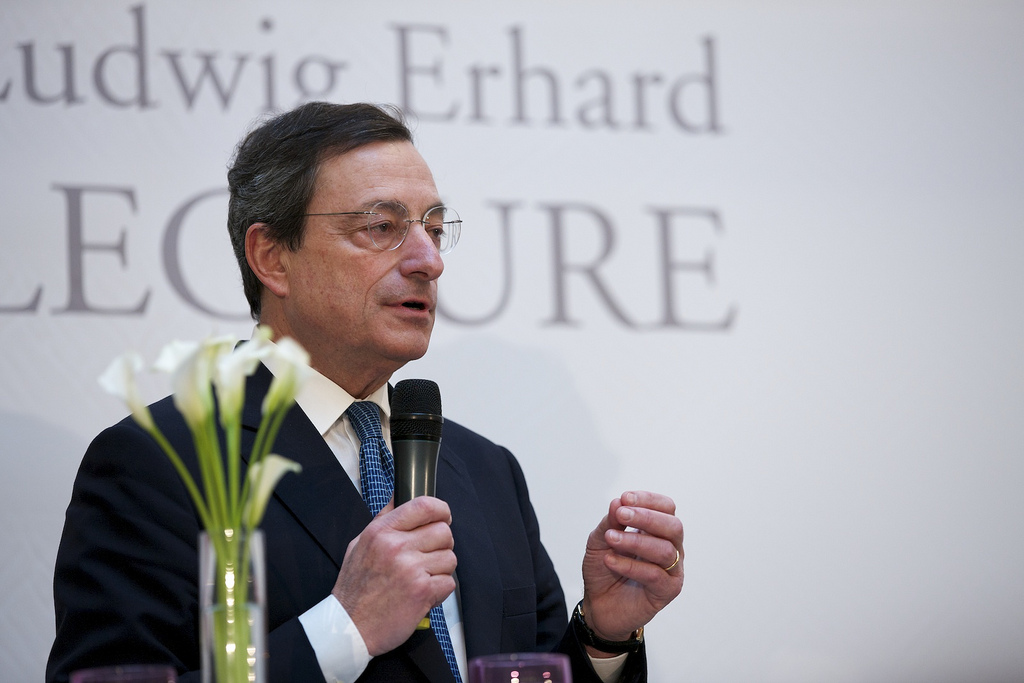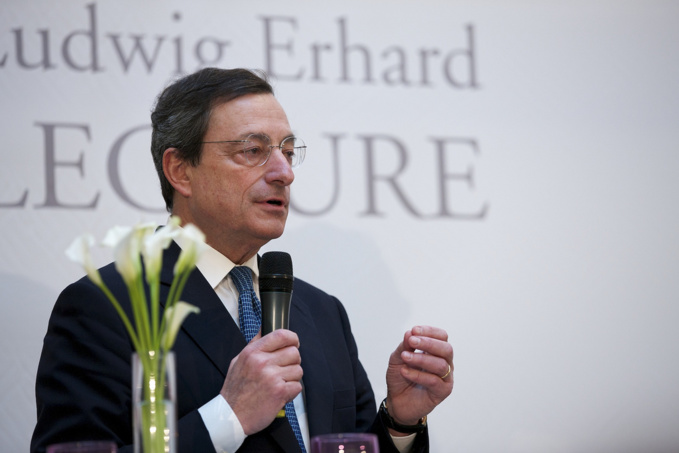The Governing Council of the ECB extended the program of quantitative easing (QE) to September 2018 (or longer, if necessary), but "in any case, until the moment when the council sees sustainable approach to the inflation targets of 2%." At the same time, the planned asset purchase volume has been reduced from the current € 60 billion to € 30 billion since January 2018. The bank noted that the indicator could be increased if the situation in the economy worsens. The refinancing rate is still zero, the emergency lending rate was kept at 0.25%, the deposit - minus 0.4%, and analysts do not expect any changes.
The ECB made this decision against the backdrop of increased economic activity. The increase in incomes is supported by consumption, and export leverages the external conjuncture, ECB President Mario Draghi explained. He also noted "growing confidence that inflation (1.5% per annum in September) will reach its goal, but so far the forecast for it still depends on the degree of monetary support." The ECB believes that the main indicator of the program's effectiveness is the increase in lending to the non-financial sector in annual terms by 2.5%. Nevertheless, the funds received from redeemable bonds will be reinvested "as long as it is required," the bank said in a release. Their volume by September 2018 will grow to € 2.5 trillion (note, the US Federal Reserve, on the contrary, began to clear the balance by $ 10 billion a month since October).
Recall that in June the regulator confirmed the plans to maintain QE in the previous volume for at least until the end of the year, without revealing details of the pace and timing of the program’s curtailment. The decision on Thursday coincided with the expectations of most analysts predicting a reduction in the volume of redemption by the middle of next year. "Although the solution is a dramatic change in course from increasing support to reduce it, the regulator is still acting as gently as possible," noted ING Bank. In turn, Capital Economics explains the subsequent weakening of the euro by the fact that the lack of a program end date was perceived by market participants as a softening of the regulator's position. The center expects that a possible faster increase in the Fed's rates next year will lead to a strengthening of the dollar and will help win the strong euro back, which has risen in price by 12% since the beginning of the year. This factor restrains the growth of inflation, therefore it is also an obstacle to tightening the ECB policy.
source: reuters.com
The ECB made this decision against the backdrop of increased economic activity. The increase in incomes is supported by consumption, and export leverages the external conjuncture, ECB President Mario Draghi explained. He also noted "growing confidence that inflation (1.5% per annum in September) will reach its goal, but so far the forecast for it still depends on the degree of monetary support." The ECB believes that the main indicator of the program's effectiveness is the increase in lending to the non-financial sector in annual terms by 2.5%. Nevertheless, the funds received from redeemable bonds will be reinvested "as long as it is required," the bank said in a release. Their volume by September 2018 will grow to € 2.5 trillion (note, the US Federal Reserve, on the contrary, began to clear the balance by $ 10 billion a month since October).
Recall that in June the regulator confirmed the plans to maintain QE in the previous volume for at least until the end of the year, without revealing details of the pace and timing of the program’s curtailment. The decision on Thursday coincided with the expectations of most analysts predicting a reduction in the volume of redemption by the middle of next year. "Although the solution is a dramatic change in course from increasing support to reduce it, the regulator is still acting as gently as possible," noted ING Bank. In turn, Capital Economics explains the subsequent weakening of the euro by the fact that the lack of a program end date was perceived by market participants as a softening of the regulator's position. The center expects that a possible faster increase in the Fed's rates next year will lead to a strengthening of the dollar and will help win the strong euro back, which has risen in price by 12% since the beginning of the year. This factor restrains the growth of inflation, therefore it is also an obstacle to tightening the ECB policy.
source: reuters.com



















